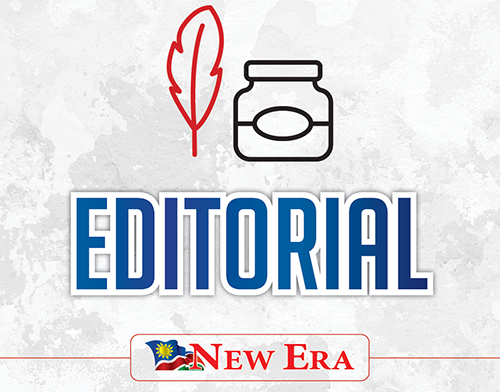Namibians will go to the polls later this year to elect new local authority and regional councillors. For many, these elections are a write-down. Many have the misconceived notion that such elections hold no real significance and ought not to be taken seriously.
The regional council elections, for instance – on the contrary and in addition to the presidential election – are the only elections where eventual winners are directly elected by the voters.
This election does not utilise a party list system, and have people voting directly for people on the ballot.
These dynamics are slightly modified for the local authorities election, which has a sort of proportional representation system where parties do appoint representatives.
But be that as it may, the leaders elected during such elections are tasked with huge challenges: fostering economic growth and the development of the regions and local authorities they represent.
There is a need to have the public understand the nature of the upcoming local authority and regional council elections. Let us delve a bit into that…
Regional council elections are conducted according to the majoritarian system, which entails that the candidate with the most votes is the winner. This means the candidate who receives most votes per constituency will be elected to the regional council. During the regional council elections, voters only vote in the constituency they are registered.
Regional councils are responsible for the development and administration of the region.
Every council must strive to promote development in the region to improve the living conditions of its residents.
During the election, voters will vote for the candidate they believe will administer their constituency most capably and effectively. During the first sitting of the regional council, the members will elect two councillors to represent the region in the National Council.
Local authority elections are conducted on a proportional representation system. During the election, the eligible voters vote for the political party or organisation they prefer. The party or the organisation appoints its representatives to the local authority, based on the proportional list system.
The seats in the local authority council are allocated in proportion to the number of votes the party or organisation has received. Therefore, the more votes the party receives, the more seats it will receive in the local authority council.
Local authority councils include all municipalities, town councils and village councils. These councils are tasked with managing and maintaining the area for which they are established, and which they represent.
During the local authority election, voters will vote for the political party of their choice. A party will appoint its representatives to the local authority, based on the proportional list system.
Although these elections do not receive the same attention accorded to the National Assembly and Presidential elections, they are fundamental for regional and national development.
Importantly, these elections are meant to complement government’s decentralisation efforts.
The Decentralisation Policy of 1998 aims to widen the level of democracy at the regional level, and to increase the participation of the general population in their development, thereby “deepening democracy, bringing government closer to the people, and promoting broader participation in governmental and developmental affairs by all citizens”.
Namibia is currently facing many challenges, ranging from a skyrocketing unemployment rate, poor health and education system and an ailing economy, among other challenges.
This has been a difficult time for so many, and has shown us the importance of electing leaders at every level who put the interests and well-being of the people who voted for them into office first.
Go out and make your voice heard when the time comes. It’s your democratic right.



